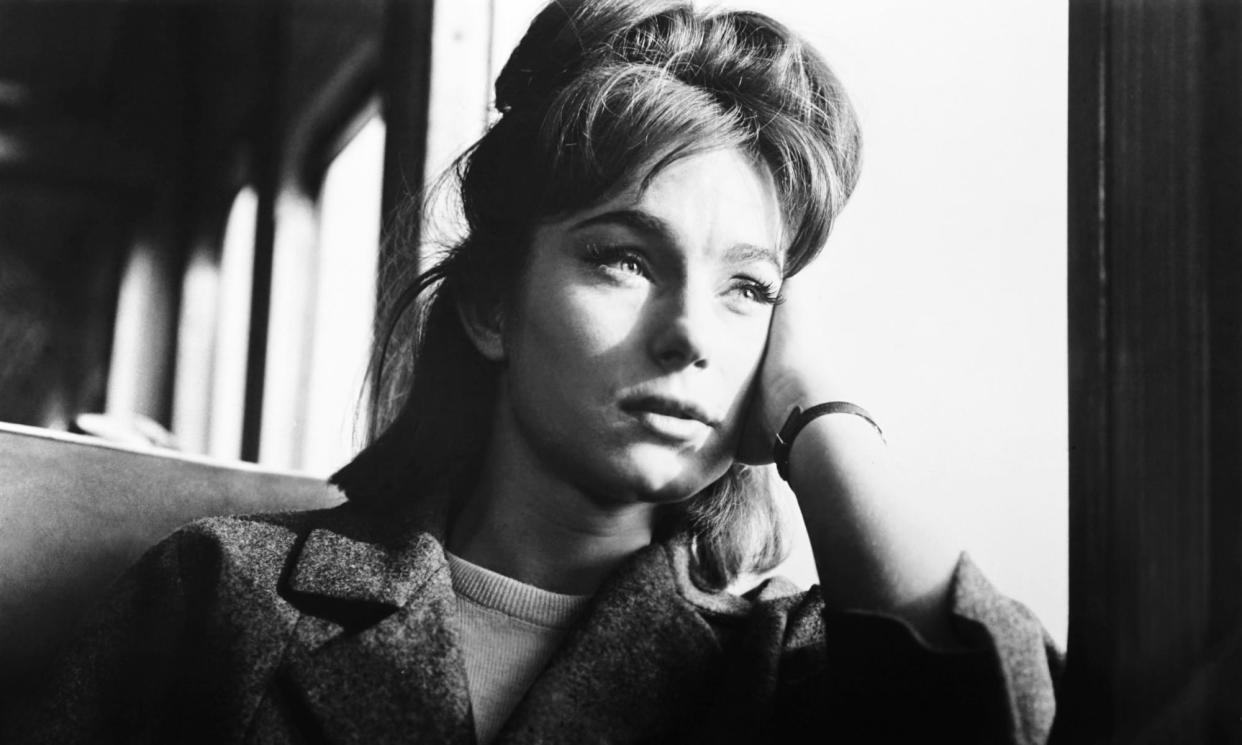Shirley Anne Field: a smart and seductive key player in the British New Wave

Shirley Anne Field had the kind of ingenue English-rose freshness and beauty that the British cinema loved in the 50s and 60s – it had something feline about it, a kind of innocent-fatale. Hers were the kind of looks that always introduced an almost unintentional note of innocence and poignancy into the tough dramas and kitchen-sink pictures in which she was cast; she had something of the model agency and deportment school and yet also the pinup mag.
Related: Shirley Anne Field: a life in pictures
Field was of the same generation as heartstoppingly beautiful performers such as Janette Scott, Shirley Eaton, Sylvia Sims and Julie Christie. She appeared briefly in Michael Powell’s 1960 chiller Peeping Tom as a temperamental film diva (quite unlike her real self) but had her breakthrough in Tony Richardson’s The Entertainer later that year, based on John Osborne’s acidly satirical play about Britain’s fading imperial dream. Laurence Olivier is seedy music-hall entertainer Archie Rice who seduces Field’s character as the judge of a seaside beauty contest. A shot of Field, in bed with the post-coitally brooding Olivier, was heavily used in the movie’s promotion; she is sexy and calculating, but also shown as a “nice” girl, or at any rate a girl from a wealthy family whose resources Archie may want to exploit. The same year, Field was in Beat Girl, the earnest kind of “youth” movie that seems a bit toe-curling now, containing young people in coffee bars putting pop songs on the jukebox. She also sings the dreadful song It’s Legal to a smouldering lite-tough guy Adam Faith.
Field was again cast as a slightly vapid and even oppressive “nice” girl Doreen in Karel Reisz’s Saturday Night and Sunday Morning, someone who (of course) would not sleep with a man before they were married. Doreen is dating the explosively moody and demanding Arthur Seaton, unforgettably played by Albert Finney, who is in turn having an affair with blowsy married woman Brenda, played by Rachel Roberts. Perhaps Roberts and Finney, in their muscular, unfinished realness rather upstaged the more demurely cast Field, but their tortured, sexually contorted existence wouldn’t make the same kind of sense without her.
In Joseph Losey’s sci-fi pulp shocker The Damned from 1963, Field’s slinkier, scarier side came to the fore, playing a young woman who seduces a middle-aged man to an awful fate; Losey saw how to use her conventionally groomed looks and mannerisms for a more menacing purpose. She was cast as the romantic female lead opposite Robert Wagner in the war film The War Lover, about handsome Yanks over in Blighty having romantic escapades with blushing female Brits. Perhaps that was another role in which she was destined to be upstaged. Four years later she appeared in the zeitgeisty swinging-60s movie Alfie as a sexy nurse (the kind of role she also had in Doctor in Clover).
But above all these roles is what had to be her 60s masterpiece: a genuinely challenging extended role in the mini-feature Lunch Hour from 1962, itself lasting about an hour and taken from a one-act play by John Mortimer, in which she is a young woman inveigled into a furtive affair with predatory smoothie Robert Stephens. Field is excellent: smart, seductive, but sweetly vulnerable and yet determined. Lunch Hour has all the New Wave preoccupations with class and pre-Pill sexual morality of the time, but unlike Alfie or Saturday Night and Sunday Morning it gives Field something substantial to do.
Field continued to work as a much admired character actor in later years, including playing Saeed Jaffrey’s mistress Rachel in My Beautiful Laundrette in 1985, perhaps ironically inheriting the kind of role that Rachel Roberts had in Saturday Night. But riding the crest of the British New Wave, she was the very epitome of a certain kind of sweet and knowing Englishness.

 Yahoo Movies
Yahoo Movies 
